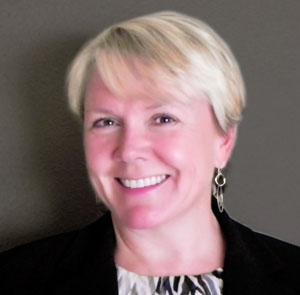
Every time I think the notion of “happiness” in the business world is just not taking hold, I am encouraged by new research that again points to the benefits of a happy workplace. Who can argue with increased performance, more creativity, better teamwork, higher levels of innovation, better customer service, less turnover and minimal sick leave?
To be clear, I define a happy workplace as having a fair, collaborative, open, innovative culture. It’s a place where people feel as though they can achieve their potential.
The latest research I’m referring to comes from Before Happiness, a new book from Happiness Advantage bestselling author Shawn Achor. Below are a few examples.
The Predictors of Success Assessment
In his 2007 study of 1,600 adults, Achor found there was a 0.7 correlation between perceived social support and happiness. (That’s greater than the correlation between smoking and cancer.) Following up on this data, Shawn developed three 10-question metrics that are even more predictive than previous measures for work optimism, provision of social support and positive stress management. Individuals high on provision of social support are 10 times more engaged at work and have a 40% higher likelihood of promotion over the next four years.
“Stress as Enhancing” Mindset
In partnership with Yale and UBS, this study used a three-minute video to teach employees how to view stress as enhancing—creating a 23% drop in fatigue-related health problems (headaches, backaches, fatigue) six weeks later. A one-hour training was conducted to deepen the learning. This additional training resulted in a longer duration of the “stress is enhancing” mindset.
The Happiness Dividend
In the midst of the 2009 tax season, Achor conducted a three-hour intervention describing how to reap the happiness advantage by creating a positive habit for 50% of the KPMG tax managers in New York and New Jersey. Four months later, the optimism, life satisfaction and job satisfaction of these tax managers were retested, revealing significantly elevated levels compared to the control group that had received no training. These tax managers’ reported levels of happiness moved from 22 to 27 on a 35-point scale, a 24% improvement in job and life satisfaction. This is one of the first long-term return-on-investment studies proving that happiness leads to long-term quantifiable positive change.
Achor has successfully shown us how to create a better life using three key factors: 1) how much social support we build into our lives, 2) whether we view stress as a challenge rather than a threat and 3) where we choose to focus our attention. The real beauty here is these tactics create positive outcomes not just for individuals but also within organizations of all kinds.
Capiche specializes in helping individuals, teams and organizations create an environment in which people are happy, achieve high levels of performance and create value every day. Call 541.601.0114 or email Chris to see how she can help you and your organization optimize strengths and boost performance.
Watch Shawn’s TED Talk:
“The goal of science is turning observation into prediction. The goal of business is turning prediction into profit. Thus good science means great business. If you can quantify predictors of success, it’s like adding GPS to your company as it navigates new terrain.” —Shawn Achor

About the Author
Chris Cook, CPCC, ACC
President & CEO, Capiche
Chris believes an organization with shared values and vision inspires passion and purpose in its entire workforce, creating an engaging, productive and positive environment. She helps organizations make a cultural shift that embodies these ideals, giving rise to happy customers, inspired employees and increased company profits. With 26 years of experience in marketing professional services and higher education, Chris has turned her focus to helping organizations define and live their brand. She is dedicated to leadership coaching, organizational development and marketing—with a keen focus on the importance of happiness in the workplace and positive psychology. A partner with Delivering Happiness at Work, Chris is accredited by the iOpener Institute for People and Performance, is a certified professional coach and holds a master in management. She serves as a mentor for the Sustainable Valley Technology Group and is a member of SOREDI’s TAG Team. Chris also serves on the Mt. Ashland Association Board of Directors and the Thrive Board of Directors. A volunteer with Soroptimist’s Strong Girls Strong Women program, she is an avid telemark skier and hiker.





Leave a Reply